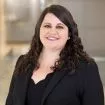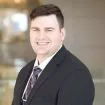On March 30, 2023, the FDA authorized marketing of Happiest Baby's SNOO Smart Sleeper, an over-the-counter infant sleep system intended to keep infants on their back throughout sleep. This marks the first time we are aware of that the FDA has given de novo marketing authorization to a product designed to keep sleeping babies positioned on their backs,1 and signals a potential expansion of what the FDA considers to be a "medical device" within its regulatory purview.
The FDA reviewed the SNOO via the De Novo Classification Request process, which "provides a marketing pathway to classify novel medical devices for which general controls alone, or general and special controls, provide reasonable assurance of safety and effectiveness for the intended use, but for which there is no legally marketed predicate device."2 The FDA's authorization of the SNOO through the De Novo process is, accordingly, predicated on the SNOO being a "medical device." The Food, Drug, and Cosmetic Act defines a "medical device" as any item "intended for use in the diagnosis of disease or other conditions, or in the cure, mitigation, treatment, or prevention of disease," or one that is "intended to affect the structure or any function of the body . . . and which does not achieve its primary intended purposes through chemical action within the body . . ."3
Based on publicly available information, it appears the FDA may consider the SNOO to be a medical device based solely on its impact on infant sleep position, though FDA's de novo classification does not specify. In its press release regarding the SNOO, the FDA described the smart sleeper as "intended to facilitate a supine position (lying flat on the back) during sleep for infants up to six months of age who are not yet able to roll over consistently."4 The FDA went on to acknowledge that "[a]ccording to the National Institute of Child Health and Human Development, infants who are placed in a supine sleep position are at a lower risk of Sudden Infant Death Syndrome/Sudden Unexpected Infant Death (SIDS/SUID)." Yet with respect to the SNOO, the FDA stated that it had "reviewed data comparing the incidence of reported SIDS/SUID in SNOO users to historical CDC SIDS/SUID data" and found the data "not sufficient to determine whether the device could prevent SIDS/SUID." Thus, the FDA cautioned, "the device is not intended to prevent or reduce the risk of SIDS/SUID."5
To the extent the FDA considers the SNOO a medical device based on its intended impact on infant sleep position, many other sleep products could also fall within this, or a similar, category—e.g., pillows intended to position the head to reduce snoring, pillows intended to be used by pregnant women to enable a comfortable sleep position, or even simply mattresses of different firmness intended to support the body in different ways.
These sleep products, however, have historically been considered to be within the Consumer Product Safety Commission's (CPSC) jurisdiction. The CPSC is the agency charged with protecting the public from unreasonable risks of serious injury or death from consumer products.6 Indeed, the CPSC regularly exercises regulatory authority over products designed for infants, including sleeping infants. In recent years, for instance, the CPSC published a "final rule establishing a safety standard for infant sleep products," 86 FR 33022, and in early 2022, Congress enacted the "Safe Sleep for Babies Act of 2021," which mandated that "inclined sleepers for infants" be classified as "a banned hazardous product under section 8 of the Consumer Product Safety Act," 136 Stat. 1208. Also in 2022, the CPSC announced that certain products designed for sleeping infants were "unsafe," because the baby could be left to rest on an incline and potentially unattended during sleep. In fact, even Happiest Baby highlights that "SNOO meets or exceeds all Consumer Product Safety Commission, Juvenile Product Manufacturers Association, FCC, UL safety standards for bassinets and consumer electronics."
The FDA's authorization for marketing of the SNOO as a medical device removes this product from the CPSC's jurisdiction, and vests regulatory responsibility with the FDA. See 15 U.S.C. § 2052(a)(5)(H) (excluding medical devices as defined in the Federal Food, Drug, and Cosmetic Act from definition of "consumer product"). At a minimum, this means:
- Happiest Baby will have to report any adverse events related to the SNOO to the FDA,7 instead of the CPSC.
- The FDA will now be responsible for investigating complaints or alleged issues with the SNOO, not the CPSC.
- And, though both the FDA8 and the CPSC9 conduct recalls of products within their jurisdiction, the FDA now becomes the agency responsible for overseeing any potential recall of this product.
Companies in this space should consider the possible implications of the FDA's increased involvement in the authorization and regulation of infant and/or sleep-related products. At a minimum, if the FDA continues to consider infant and/or sleep-related products to be medical devices, companies who make or distribute these types of products may for the first time need to become familiar with the FDA's regulatory regime and requirements. We will continue to follow and report on developments from both agencies and stand ready to advise clients seeking more specific information.
Footnotes
2. De Novo Classification Request | FDA.
3. 21 U.S.C. § 321(h)(1).
4. https://www.fda.gov/news-events/press-announcements/fda-roundup-march-31-2023.
5. Id.
7. 21 U.S.C. § 360i.
9. 15 U.S.C. §§ 2051−2089.
The content of this article is intended to provide a general guide to the subject matter. Specialist advice should be sought about your specific circumstances.



